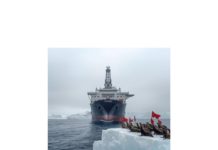INVESTMENT PERSPECTIVE
Nu J Mulraj
Jul 31- Aug 6, 2022
Energy’s influence over geostrategy
The visit of Nancy Pelosi to Taiwan, against vehement opposition and threats by China, has resulted in a senseless and avoidable ratcheting up of global tensions, which will get worse. To understand the gravity of the situation it is important to analyse the role of energy sources, and the geopolitical and strategic implications thereof.
China’s weakness – the Strait of Malacca: This video, China’s Catastrophic Oil & Gas Problem, is a must see, albeit lengthy, video to understanding China’s energy dependency and future planning. The body of water adjacent to China, and several SE Asian countries, is called the South China Sea (SCS). According to a 1982 international treaty, signed by over 150 countries, including China, called UNCLOS (United Nations Convention on Law of the Seas), all countries are free to navigate, without seeking permission. But China laid claim to over 90% of the SCS and demanded that other countries seek its permission first. China’s claim was dismissed by the International Tribunal at the Hague.
Some $ 3.5 trillion worth of goods pass through SCS, including about 80% of China’s oil and a large part of its gas imports. The ships pass through the Malacca Strait (see map) a thin body of water 1 ½ mile wide. This is China’s geostrategic vulnerability. In the event of a conflict, opposing nations can block the Strait and bring down China’s economy. Two thirds of China’s trade, exports and imports, pass through it.
China is, in fact the 6th largest oil producer, roughly the size of Iraq, and was, until 1993, exporting oil, primarily to Japan. China’s economic growth, from mid 80s, under Deng Xiaoping, made it, from 1993, a huge importer of oil, of 80% of its requirement, and this led to the Malacca Dilemma. Besides Malacca Strait, another choke point is the Strait of Hormuz.
That is going straight to the point of China’s vulnerability.
China’s planning of alternative routes to cut dependency on Malacca Strait: In order to reduce its dependency on the sea route to the SCS, and to avoid the vulnerability of the Malacca Strait, China is looking at gas supplies over land. Two pipelines from Central Asia have bee built, an area rich in natural gas. One, from Khazakastan, to carry oil, and the other from Turkmenistan, to carry gas. Both these countries were in the Russian sphere of influence, but now China is a main customer for them.
Now that Russia has stopped/slowed its oil/gas supplies to Europe, it (Russia) is looking for other customers. It has built a pipeline, called the Power of Siberia, to carry gas to China, commissioned a second Power of Siberia and proposes a third. These three will supply, in total, 100 billion cubic meters /year of gas to China. Besides this, Russia is setting up the largest LNG (liquefied natural gas) terminal which will be carried over the Arctic, to China, which is building regasification plants. Total Russian gas supply will meet half of China’s needs.
Once the overland supply infrastructure has been built, the Malacca dilemma will be resolved, and the threat of choking supplies of oil to China will be nearly eliminated.
The stupidity of the Ukranian war: This brings into question the abysmal strategic planning and thought (or lack thereof) of USA and NATO. Russia had been protesting to USA/NATO, for long before it invaded Ukraine, that it viewed as an existential threat, the plan to invite Ukraine (with whom it shares a border) to join NATO. The US/NATO ignored the Russian warnings and maintained that Ukraine was free to seek NATO membership if it wanted to. This is beautifully explained by John Mearsheimer, a renowned American political scientist, in this video. Putin had, on Dec 17, 2021, asked, in writing, for a written guarantee for 3 things:
1. That Ukraine would not join NATO
2. That no offensive weapons would be placed on Russian borders and
3. That western troops, which were in Ukraine since 2019, would return. All justifiable demands.
USA/NATO analysed and concluded that Russia could not afford the consequences of invading Ukraine. That 1. Russia could not afford to lose Europe, its biggest customer and 2. That financial and trading sanctions which the West would impose would cripple its economy, and that they would not dare risk that. The three Russian demands were rebuffed, leading to the Ukrainian war.
The West’s analysis has been proven wrong. Russia has been able to find other countries as customers for its energy sources (including India, which got oil at a discount). And the sanctions did not work because, until Europe can transition to other sources of energy, it is dependent on and vulnerable to, Russia for supplying oil and gas. Some European countries were exempted from sanctions, and their purchases of oil/gas in the first 100 days after the invasion, a $ 100b., was enough to pay for the war, and then some. The Russian ruble, after an initial fall, is now stronger than before the invasion.
Net net, it has been a colossal waste of resources, and a human tragedy which was totally avoidable. Millions of Ukrainians displaced, thousands killed, destruction of property and, now, the Armageddon of a nuclear disaster in Ukraine. A nuclear power plant in Ukraine, now under Russian control, is in danger of exploding as the civilian power supply needed to cool the reactor, is intermittent. And, there is a risk of a missile strike at any time.
Think about the consequences of the foolish analysis and conclusion of Western policy.
Europe is struggling to find energy sources and is not only fighting inflation but also facing recession. The CEO of BASF in Germany has warned that half of Germany’s mid and small sized industrial units will shut down. Energy is being rationed, and, when winter comes, the situation would be worse. Nord Stream 2, which cost 9.5 b euro, has been a complete waste. Other pipelines from Russia to Europe will also be shut.
The whole investment is being duplicated by Russia building three Power of Siberia pipelines to China, as also LNG terminals and regas plants. What a waste. And for what?
But look also at the geostrategic folly!
What USA could, and should, have done, is to wean Russia away from China, the two big adversaries of USA. Russia considers itself more European than Asian. Donald Trump had the right idea, to befriend Russia, but his overtures were derailed by the Dems, who staged a fake investigation into Russian collusion, trying to impeach Trump.
Instead, Russia and China are now more intricately tied, and economically interdependent. Both with formidable military capabilities.
The inanity of the Pelosi visit to Taiwan: As if the world was not complicated enough, Speaker of the House, Nancy Pelosi (third in line of succession to Presidency after VP Kamala Harris) decided to visit Taiwan, a part of a delegation which toured to Singapore, Malaysia, South Korea and Japan. China, which views Taiwan as a province, was provoked. The US policy stance towards Taiwan has been one of strategic ambiguity. It admits, on the one hand, to a one China policy, but also has a law, the Taiwan Protection Act, under which it will provide Taiwan with weapons to defend itself.
China viewed the visit of the 3rd most senior politician to Taiwan as unwarranted interference in its own affairs, and even threatened to shoot down her incoming flight if she decided to come. She did visit. Thankfully her flight was not shot down, China was using wolf-warrior diplomacy. But China is likely to take aggressive steps in the coming weeks, which will, undoubtedly, affect global stockmarkets.
The question to ask is whether there was a need to provoke China by going to Taiwan? Could the meeting not have happened virtually, or, say, in Singapore/Korea? As an analyst, the reward: risk ratio of going is zero: infinity. Solidarity towards Taiwan can, and usually is, verbally announced, why not now?
In the case of Ukraine, the decision, of upholding of Ukraine’s right to join NATO, was based on the analysis that Russia would never invade, but it was an error of judgement, which went awry with horrible consequences. Will the decision, that Pelosi has the right to go where she chooses, based on the analysis that China is more vulnerable to sanctions than Russia is, as it has a huge trade surplus, and is dependent on the choke point of the Malacca Strait, go equally wrong? Is there enough reward to justify the risk?
Come November: Perhaps one explanation (in this crazy world almost anything is a possibility) is events in November, in both USA and in China.
In USA, we see Congressional elections in November, and the high probability of the Democrats losing control over one, or both, of the houses (last chance of Nancy to fly at Government expense). The Taiwan visit diverted attention from economic problems at home, including inflation and recession.
In China, Xi Jinping also faces a party meet in November, where he is trying to get himself a third term as President. In view of various domestic problems, he needs something to boost his chances. The real estate crisis has spilled over into a banking crisis and several banks, including large, Government owned ones, are facing bank runs, and are not paying out money. Nature is also showing its fury and large areas have been flooded, which will affect agricultural output.
The Taiwan brouhaha might, perhaps, have been convenient as a sideshow to divert attention from domestic problems. Is that too cynical?
Last week the sensex rose 817 points to close at 58387. What now?
There are three future scenarios.
First – China continues to shoot missiles over Taiwan, and engages in cyber warfare, and tries to block trade to and from Taiwan. Markets would breathe a sigh of relief, and markets would continue their rally, briefly. Until the next hike, in September, of US interest rates. Inflation continues to rampage.
Second – a missile accidentally hits land, and escalates the conflict, with other countries responding. This would be disastrous, especially if the US were to get involved. Stockmarkets would crash and it would be a nightmare.
Third – hoping against hope, the Chinese Communist Party does not extend Xi Jinping’s Presidency to a third term but, instead, appoints a successor who seeks to mend ties with the West. This would result in a resumption of global trade and in a period of global growth and prosperity. A dream scene. Stockmarkets, of course, would shoot up faster than an ISRO rocket.
What happens is anyone’s guess, but, given that the world is facing inflation (the highest in 40 years in USA), rising interest rates to curb it (hitting both consumption and investment) and a recession (two quarters of negative growth in USA and signals of a third quarter too), investors would do well to treat the ongoing rally as an opportunity to get light.
That’s straight to the point.
Picture Source: https://www.unav.edu/web/global-affairs/detalle/-/blogs/china-and-india-fight-for-the-gates-of-the-strait-of-malacca










































COMMENTS